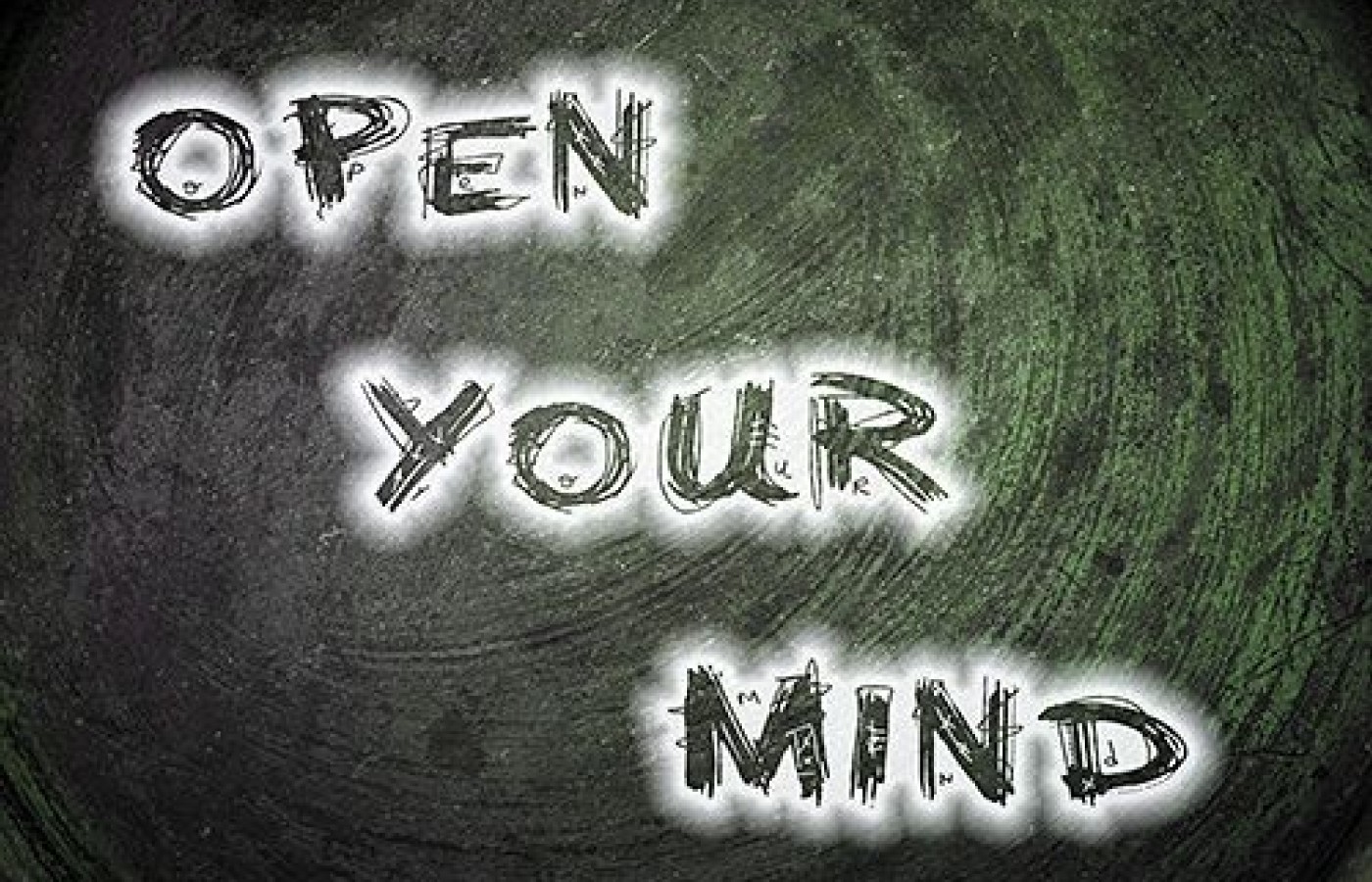It’s a new year and many chiropractors are evaluating what will enhance their respective practices, particularly as it relates to their bottom line. One of the most common questions I get is: “Do I need to be credentialed to bill insurance, and what are the best plans to join?” It’s a loaded question – but one every DC ponders. Whether you're already in-network or pondering whether to join, here's what you need to know.
Saying No to Medicine
"Every time you walk into a physician's office, you run the risk of overtreatment: Tests you don't need, medications that are ineffective (or dangerous), procedures that cause more problems than they solve. In many cases the best thing for your health is to do nothing."1
An interesting article recently appeared in Men's Journal titled "When to Say No to Your Doctor." The article begins with the summary statement above and effectively arms readers with information that will help them "take more responsibility for your own health care, because you can't be sure anyone else is. The first requisite is the ability to say no to your doctor."
The author provides a significant amount of information, as well as resources including several websites and recently published books by noted medical doctors:
- Overdiagnosed: Making People Sick in the Pursuit of Heath by Dr. Gilbert Welch, professor at Dartmouth's Institute for Health Policy and Clinical Practice
- Hippocrates' Shadow: Secrets From the House of Medicine by Dr. David Newman, director of clinical research at Mount Sinai School of Medicine
- How We Do Harm: A Doctor Breaks Ranks About Being Sick in America – by Dr. Otis Brawley, chief medical officer at the American Cancer Society
- The Citizen Patient: Reforming Health Care for the Sake of the Patient, Not the System by Dr. Nortin Hadler, professor of medicine at the University of North Carolina
The article features three sidebars of particular interest that include quotes from the noted authors above. The following gives you the flavor of each sidebar:
Screening for Disease When No Symptoms Exist
"It's a good idea, [but one] that we don't know how to do very well," [Dr. Nortin] Hadler says. "Our screening tests stink, and we're testing for too many things that aren't serious problems or for which we don't have effective treatments. I would be furious if anyone checked my cholesterol or PSA."

Blood Pressure – "The problem isn't measuring blood pressure per se; it's interpreting the results when they're not terrible but still less than ideal. If getting consistent readings of systolic pressure in the borderline or prehypertension range of 130 to 139, or even in the mild hypertension range of 140 to 159, pushes you to make changes in diet, exercise, and handling stress, then that's a valuable screening test that will pay key dividends. If it prompts your physician to put you on antihypertensive drugs, then it's a screen of dubious value since the most comprehensive study, a 2012 meta-analysis of previous research, found that treating mild hypertension with drugs in people without heart disease didn't do any good."
Cholesterol – "Some cardiologists who are willing to admit that LDL has been a flop as a screen for heart disease put their faith in a later generation of advanced lipid tests, which give a more specific picture of LDL cholesterol in action – for instance, the size of the particles or the number that invade the artery walls. But no one has ever done a rigorous study showing that these tests are better at predicting future heart attacks than the plain-vanilla LDL number. "These 'advanced' tests are flaming [horse#%&#]," [Dr. David] Newman says. Put more generously, the jury is out."
PSA (Prostate-Specific Antigen) – "[Dr. Gilbert] Welch puts it broadly: For every man who 'avoids a prostate cancer death, roughly 50 are treated needlessly.' Both Welch and [Dr. Otis] Brawley, a prostate cancer expert, refuse to get their own PSA tested. The sobering research results published in the past several years have shaken the urological establishment's faith in screening and early detection. The American Urological Association, which, as recently as 2009, recommended that men at the age of 40 get an initial PSA reading, now acknowledges that the risks of false-positives and overtreatment (some amount of erectile dysfunction and incontinence is inevitable) are so great, only men in the 55-to-69 age-group should even consider it. The U.S. Preventive Service Task Force recommends that no one get the screen; which goes beyond what Brawley and Welch believe, which is that men should have the option."
Drugs: Effective for the Few, Prescribed to the Many
"Most of us trust, or at any rate hope, that the benefits of a drug our doctor prescribes will outweigh the side effects. Why else would we take it? We would probably be shocked to learn that most drugs don't do anything good for the majority of the people who use them."
Statins – "The statistic that tells you what you need to know about the severity of a drug's side effect is the 'number needed to harm.' So if we're talking about diabetes risk, the NNH for statins is 50 – dose 50 people with a statin and you can expect to see one extra case of type 2 diabetes turn up. The most common side effect of statins is muscle pain and weakness and, in severe cases, muscle breakdown. Here the NNH is 10 – 10 to treat, one to harm. Mental 'fuzziness' and forgetfulness haven't been rigorously studied enough to generate an NNH, but enough anecdotal reports have come in that two years ago the FDA slapped statins with a cognitive safety alert."
Blood Pressure Meds – "The catch, and you saw this one coming, is that while the risk of heart attack and stroke goes down when blood pressure drops in response to changes in diet or exercise or handling stress, when you use drugs to treat mild hypertension to get the same reduction, nothing comparably good happens. And according to thennt.com, the drugs have an NNH of 12: For every 12 treated, one will suffer from side effects that, depending on the type of drug, include fatigue, dehydration, and sexual dysfunction."
Antibiotics (for Upper Respiratory Infections) – "In study after study, the drugs have been found to do precious little good, at best shortening the duration of a symptom like a cough by a day or so, and at the risk of building up antibiotic resistance in cases where the drugs may really be needed."
Surgeries You May Be Better Off Without
"The procedure itself is rarely systematically evaluated: A few influential doctors bring out something new, it catches on, and in a few years we have procedures like cardiac stenting to reduce heart attack risk or spinal-fusion surgery to relieve back pain that become institutional cash cows with little scientific evidence that they work as advertised."
Coronary Bypass Surgery and Stenting – "Stenting and similar procedures have flourished, accounting for more than a million procedures a year. If only they worked as well in the heart vessels as they do on paper. 'The bleakest chapter in the entire history of Western medicine' is how Hadler, the Cassandra of American medicine, assesses both bypass surgery and the entire field of interventional cardiology."
"Over the past few years, a pushback has been building, with a small but growing number of criminal cases brought against unscrupulous hospitals and doctors guilty of excessive or inappropriate stenting."
Prostate Cancer Treatment – "The numbers do not encourage. In the past 20 years, there have been two huge clinical trials comparing the outcomes of men who had been screened with PSA (if they had prostate cancer, it was more likely to be treated early) with those who had not. The European study showed fewer deaths from prostate cancer in the PSA group but no difference in overall mortality. The American trial saw no difference in either measure, deaths from prostate cancer or total deaths."
Disk Surgery for Lower Back Pain – "You can find small individual studies in which fusion surgery appears to be effective at relieving pain – the results are famously unpredictable. But if you look at the research as a whole, fusion tests out about as well as nonsurgical treatment, with positive results between 30 and 60 percent."
"Hadler, who has contributed his own back-treatment exposé, Stabbed in the Back, regards disk surgery as the only true rival to coronary stents and grafts in the modern medical disaster department. As the North American Spine Society's congressional run around science seems to indicate, some bad ideas are too well defended to die."
Knee Arthroscopy – "In one 2002 study done by a VA hospital in Houston, the study group received the arthroscopic surgery and the control group got sham surgery – the telltale three-incision stigmata and nothing more. Both groups got about the same benefit in pain relief and mobility, results that were replicated in a Finnish study published nine months ago in the New England Journal of Medicine. In a multicenter study, also in the journal, last year, a group of patients who had a meniscal tear did no better after arthroscopic surgery than a similar group who received six weeks of physical therapy to strengthen the muscles around the knee. Consider that 465,000 'partial meniscectomies' are done in this country every year. 'It's open season on the American knee,' Hadler says."
It is exciting is to see these issues (which the chiropractic profession has been discussing for decades) make their way to mainstream media. The fact that this effort is championed by prominent medical doctors is surprising – and gives the article that much more credibility.
Every DC should read and print out / e-mail this article so their patients can read it, because it puts modern medicine in perspective. It will help patients understand their responsibility in maintaining their health in a system fraught with greed and ignorance.
Reference
- Hooper J. "When to Say No to Your Doctor." Men's Journal, October 2014.
Read more findings on my blog: http://blog.toyourhealth.com/wrblog/. You can also visit me on Facebook.



